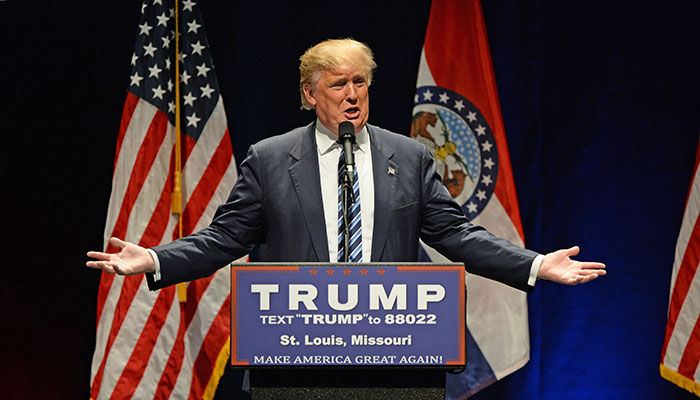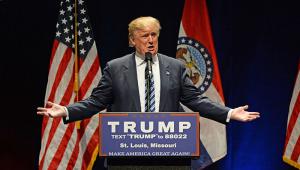The plans drew immediate criticism from aid organisations and Trump’s fellow Republicans in Congress, increasing the likelihood they won’t go ahead in their current form.
Nevertheless, the proposals reflect the extent to which the president will endeavour to put “America first”; plans to slash non-military overseas spending by around $19bn come amid unprecedented levels of need around the world, and include pulling back on food aid as swathes of Africa face famine.
The document said the US government would ensure aid that does continue will “support American interests and values”.
The International Rescue Committee highlighted that Trump has proposed a 30% cut to the international affairs budget, including a 46% cut to development assistance, a 26% cut to global health programmes and a “stunning” 45% cut to humanitarian aid.
This would “imperil the course of development and economic growth worldwide, as well as exacerbating the very global threats and challenges that require US leadership more than ever,” it said in a statement.
Some Republicans – whose support will be critical in getting the budget proposals passed – seem to agree.
Sentator Lindsey Graham, the Republican chairman of the Senate subcommittee for diplomacy and foreign aid spending, said the proposal would require a “retreat from the world” and could put “a lot of people at risk”.
“This budget is not going anywhere,” he concluded.
Speaking yesterday, Mick Mulvaney, director of the US Office of Management and Budget, pitched the proposal as one planned from the perspective of “people who are actually paying the bills”.
“For years we’ve simply looked at a budget in terms of the folks who are on the back end of programmes, the recipients of taxpayer money, and we haven’t spent nearly enough time focusing our attention on the people who pay the taxes,” he said.
The document takes aim at Medicaid – a US health insurance programme for those that cannot afford coverage – and domestic anti-poverty measures such as food assistance to make savings worth $3.6tn over the next decade.
Meanwhile, it envisages increasing defence spending by $54bn on 2017 levels and includes $71.8bn for immigration controls, including an additional $1.6bn towards the wall Trump plans to build on the border with Mexico – a key campaign promise.
Mulvaney stressed that the budget would also be balanced within the 10-year window – a pledge centred on the assumption that Trump’s programme of tax cuts and regulatory roll backs will boost US economic growth from a predicted 1.9% per year to 3%.
But Larry Summers, an economic advisor to former US president Barack Obama and treasury secretary in Bill Clinton’s administration before that, has said the document only achieves reductions in the deficit through an “egregious accounting error”.
In a blog for the Washington Post, Summers wrote that tax cuts cannot boost growth and, as the administration asserts, be revenue neutral, with the revenue neutrality coming in part because tax cuts stimulate growth.
“This is an elementary double count,” he said. “You cannot use the growth benefits of tax cuts once to justify an optimistic [economic growth] baseline and then again to claim that he tax cuts do not cost revenue. At least not in a world of logic.”
Mulvaney responded that in other areas the budget had been conservative in its projections. “We stand by the numbers,” he said.













